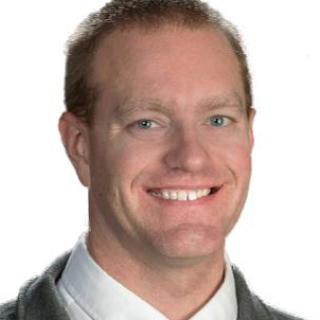

Associate Vice President, Office of Distance Education and eLearning
I've benefited from strong female role models and leaders in my life. The most influential would be my mom, who passed away a few years ago. She was an active advocate for treating all people with respect and dignity. She inspired and motivated the community around her to do the same. Because my mom and dad created an environment around me in which everyone was given equal opportunities, it’s jarring to experience when that does not occur. When I consider my field of technology and education and I read about or experience first-hand the lost opportunities for a subset of people or for all of us to benefit from diverse perspectives, backgrounds, and experiences, I want to do my part to advance opportunities for everyone.
You don’t know what you don’t know. It’s critical to put yourself in others’ shoes, to have insight and empathy for how others experience the world. Learning about male privilege gave me an impactful glance into experiences that because of my role, gender, and ethnicity, I simply have been granted without knowing it was granted to me. Now that I know, I have increased visibility to understand how my male privilege impacts my actions and the actions/impacts of others. Like the NBC blurb, “the more you know,” the more I can be aware of the impact of male privilege, the better positive change agent I can become.
Beyond the formal sessions associated with the Advocates and Allies programs, I bring forward my observations and experiences in individual, small group, and team meetings. I have increased confidence to actively share my observations and use my participation in the program as a segue into conversations about internal team interactions and our interactions with the rest of the university community. At a practical level, I am more aware during meetings and conversations of the terms people are using, who's looking at who, the verbal and non-verbal cues being transmitted, and how these conscious and subconscious actions can enhance or shut down contributions from all members of the team.
I know there’s been individual impact on colleagues because during conversations with team members, they’ve brought forward observations or first-hand experiences that made them uncomfortable or experiences they wanted to talk through. In addition, team members have thanked me for opening up an honest dialogue about dynamics in the workplace.
I believe there’s increased awareness of how impactful our words and actions are. Since our work is incredibly collaborative, with one another, and with members of the Ohio State community, being conscious of our words and actions can only bring out the best in ourselves and our partners.
Knowledge is power. We work in a culture of generating new knowledge by building upon the work and knowledge of others. We are 100,000 strong – a community that desires to not let unanswered questions go unanswered. Our enterprise is to prepare students for global citizenship. By raising the awareness and consciousness of male privilege and providing insight into experiences and views of others, there’s an opportunity to embed the lessons and ideas of the Advocates & Allies initiative into the university culture, which at its best is a never-ending effort to learn and improve individually and collectively.
Continually learn. Ask questions. Seek feedback. Accept feedback. Reflect. Look at the world from multiple lenses. Be an active contributor to the conversation.


